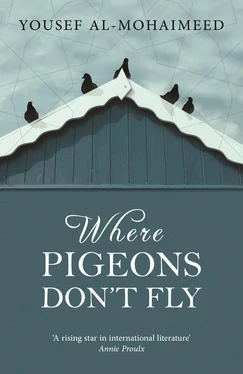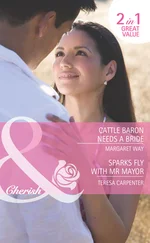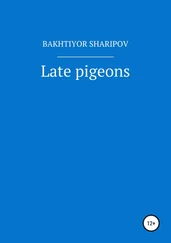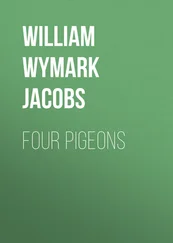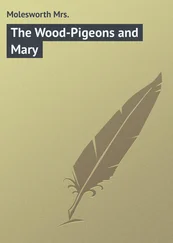Suddenly he started crying, whimpering in a barely audible voice. Her worry grew as she tried to make him tell her what had happened. ‘This is a road we must all take,’ she said, but differed from the other mourners by adding, ‘We have to live our lives the way we want, Fahd. We won’t live twice.’
She offered to be with him for a while, suggesting that he leave his friend’s flat. ‘Let’s take a furnished flat for a day or two until this passes.’
‘I wish, darling, but it’s difficult!’
‘Nonsense. It’s not difficult at all. I’ll coordinate with my friend Nada. My mother trusts her.’
‘No, sweetheart, it’s difficult for me.’
He hung up, promising her that they would meet when things were a little calmer. The meeting, a week later, lasted just a few minutes, before the sheikh with the cream mashlah crept up on them and led Fahd to the final disaster of his short life.
He tried closing his eyes. His mobile whispered a message’s arrival. Opening it he found an image file: lying on a white marble table top, a striped napkin folded into a small triangle and beside it a cup of Turkish coffee on a small white saucer. Darling: here’s your coffee, like it or not, and don’t forget mine, sweetened with your honeyed lips. I really miss them, Fahoudi.
He smiled and dozed untroubled until the sunset prayer.
He awoke enveloped in a lethal migraine. Swaying, he stood up and looked over at Saeed’s open door. He searched the kitchen shelves for some Panadol Extra then took two tablets one after the other and forced them down with large gulps of water that left him panting like a dog. He went back and stood facing the canvas, staring at it in a daze.
He saw the skulls lying about and the corpses, but noticed the birds at the top weren’t ravens but had turned white instead. They were pigeons flying over the bodies. Damn it, why were these white and grey pigeons here? In a choked voice, not knowing if anyone could hear it, not knowing if he heard it himself, he shouted, ‘I don’t like pigeons.’
He adored the life of Pablo Picasso, his creative madness, his transitions from one artistic period to another — blue, to pink, to cubist, to starkly abstract — though most of all he loved the stage that produced his famous painting, Guernica . However, he had no affection for the artist’s habits and behaviour. He loathed his love of bullfighting and his passion for doves … Or could they be pigeons? Why must pigeons flock into everything? Fahd started forward and made to rub them out but his sight grew dim, the canvas swayed, and he sat down slowly, holding his head, before stumbling over and taking the coffee pot from a drawer. Gripping the table edge, he poured water into the pot, placed it over the flame and heaped two spoonfuls of black Turkish coffee on to the water’s surface, stirring it around before lifting the pot from the heat.
He sat and drank his coffee in a dream. He raised his face to the ceiling and found that it was neither moving nor slowly descending. He rose to his feet and went over to the paint box, taking a tube without paying attention to the colour, just unscrewing the tiny lid, lifting it to his nose and inhaling deeply as he continued to drink the bitter coffee. He took a look around him: his bed over there, the kitchen in the corner, the ceiling lamps dangling over the dining table, shoes randomly scattered by the front door and the canvas unchanged on the easel, black ravens hovering at the edge, crows circling bodies cast down on a rooftop like a field of melons beneath the searing sun.
He felt that his senses had returned to him and imagined the ravens and crows suddenly flying from the canvas as he slept like a dead man and feasting on his eyes. What would he have done then? He would have woken without eyes, without a heart, perhaps.
He thought of the poem by Lorca that he loved, The Ballad of the Moon , and how the gypsies sought to fashion necklaces and rings from the heart of the moon that descended from its heights. He would be like Lorca’s moon, dropping down to play in the blacksmith’s forge, but there would be no boy to warn him of the wounding crows.
He thought of little Sara, her face unfolded like a moon, her childish laughter, her charm, as he carried her that evening in the Joy Oasis Arcade in Granada Mall, taking her back to her mother, Tarfah, and sitting with her in the family section. He wept when he imagined her warning him of the crows, without him warning her of the long nights she must live without a father, that father who was not alive that she might wait for his return, nor dead that she might forget him, for she had never seen him.
— 60 —
FAHD REMEMBERED LORCA’S POEM as they questioned him about the olive-stone prayer beads around his wrist. He remembered the gypsies sallying forth from the olive groves on horseback, kidnapping the playful moon and from her glorious silver fashioning necklaces and rings. Were the stones about his wrist from the olive trees through which the gypsies rode, flying from the hands of Spanish girls out picking, to a prison on Mecca’s outskirts, between whose walls an inmate fretted, incarcerated for handing out his group’s anti-government pamphlets one dawn in the courtyard of the Grand Mosque? That inmate passed the nights, the nothingness, the silence, grinding the Spanish girls’ olive stones against the prison’s rough cement floor, piercing them through from both ends, threading stone after stone until they became prayer beads that he would keep as a legacy to his son, the artist, who would colour them with oils and set them at his wrist like a bracelet that he might always remember his father’s tragedy, never realising that he too would thread together his own tragedies and be forced to flee from the land he loved, accused of sorcery.
While they were summoning the sheikh who now sat before him, Fahd thought, What accursed prayer beads are these? What ripe olives flew here from Granada or Seville? What olive tree in Andalusia is cackling faintly at my plight, in league with gypsies against the moon, now plotting with the gypsies here against me? Are these men gypsies, too, my father? Are they gypsies, too, dear Lorca? Am I the moon who came to earth and entered the forge to play? Yes, I am he; I have a side that glows like silver, and a dark side, too. I have descended to this forge of a land that I might live, but I paid no heed to little Sara’s warning and I could not do as Lorca’s moon and suddenly ascend at the right moment, grasping the child’s hand. No, I remained for the gypsies to charge me with possession of olive stones. Dear Lorca, I stole no olives, I merely kept their stored and dusty stones safe. A week ago, I painted them to resemble the bright African skies. When the gypsies came stealing through the forest of cars I did not hear their drums. I did not hear them cry from their car at the frightened people in the alleys, scampering and hiding like rats. I heard nothing but my sweetheart’s voice as she eased the burning loss of my mother. I failed to see that Andalusia had come to Riyadh, never thought that Riyadh would travel to far-off Andalusia.
‘So shall we go for a drive in the car or take a furnished flat?’ Tarfah asked.
‘What do you say to a coffee?’
‘Mmm. In the car, perhaps.’
‘No, let’s sit at a café.’
‘I think the cafés are always being watched by the Committee. Nada says there are employees in the cafés who work as spies for them. They earn more than their regular wages.’
‘I don’t think so,’ he said, adding, ‘Sounds to me like exaggerations and rumours.’
‘Anyway, going into cafés in the morning is scary.’
Fahd didn’t give it much thought. His grief was overwhelming, stifling. Although a week had passed since his mother’s burial he still had the feeling that Riyadh’s skies had lowered until he could touch them with his hand. It muddled his thinking. He was unable to continue work on his oil painting or start on another while he remembered Naseem Cemetery, Rajehi Mosque and the morgue. Perhaps the image that affected him most was the memory of standing inside the grave and looking up at the faces of the people, the movement of their lips, their outstretched hands bearing brick and lumps of clay. Whenever their faces came to mind he tried imagining them silent, that sound had been utterly abolished, leaving nothing but the image. He tried imagining that he was deaf, freeing up vast space for the image alone. How might he paint bodies circling about him, stopping to incline towards him, faces muttering, murmuring, staring, old faces, others youthful, faces wearing glasses, faces veined and worn, and all with a light coating of the dust thrown up by the ring of feet?
Читать дальше
